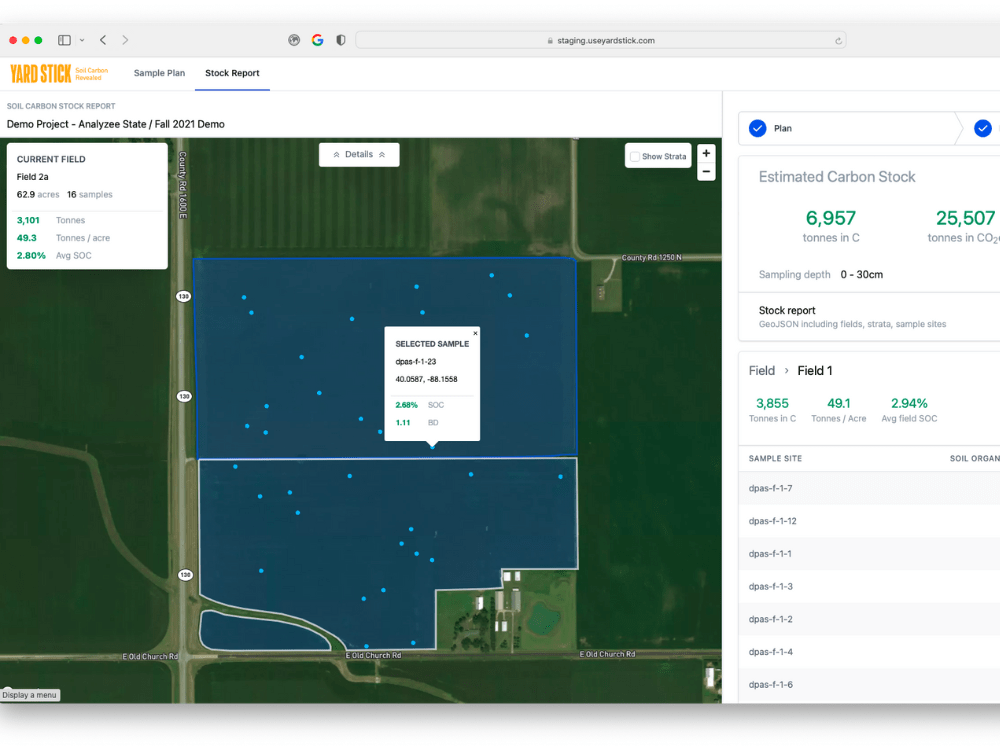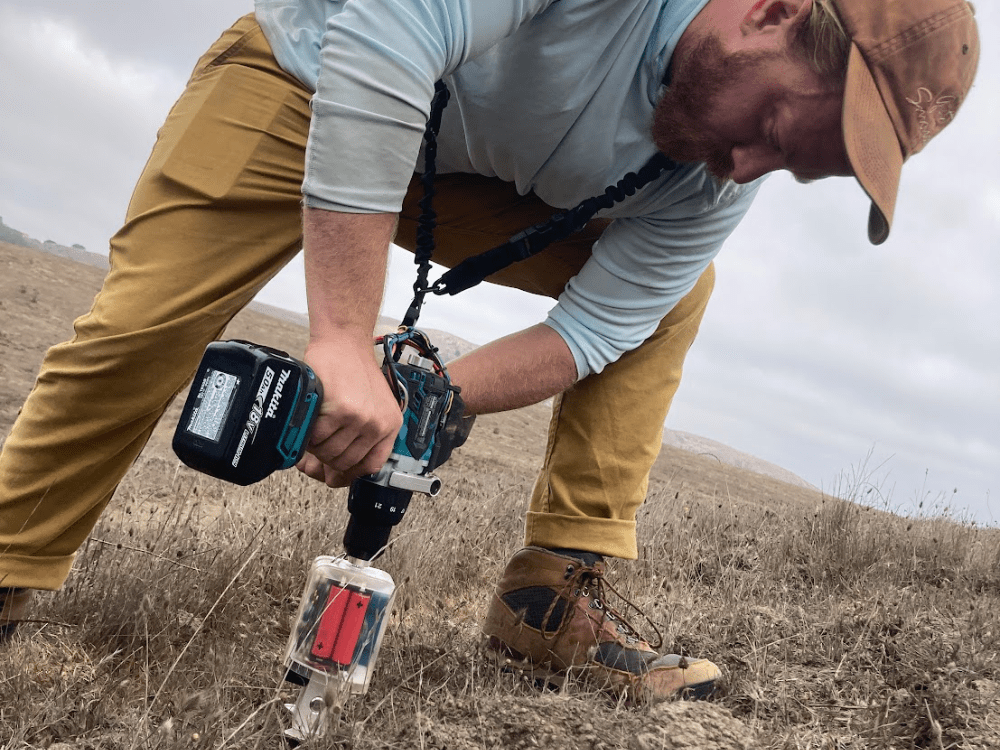Corporate commitments around emissions reductions are on the rise these days, which is creating opportunity for startups developing the next generation of carbon measurement tools. A US-based company called Yard Stick hopes to provide farms with a faster, cheaper and more accurate set of soil carbon measurement tools with which to do this.
With a hardware/software product, Yard Stick provides near-instant carbon measurement, reporting and verification (MRV) to agrifood companies working to lower their carbon intensity.
Six such companies, all partners of Yard Stick, recently received a collective total of $225 million from the United States Department of Agriculture’s (USDA) Partnerships for Climate-Smart Commodities initiative. Yard Stick was chosen as the official soil carbon stock quantification partner for these projects, and will receive $18 million as part of the deal.
Why it matters:
Soil carbon measurement today is complex and costly. Accurate measurements require digging up soil samples and sending them to a lab, where they’re often burnt to determine carbon content. Small changes in carbon can be tough to detect, and scientists debate the accuracy of some methods. As Purdue University’s Center for Commercial Agriculture pointed out recently, there’s “significant uncertainty regarding the ability to measure year-to-year changes in soil organic carbon—a necessity of a soil carbon market that makes annual payments”
While its full technology offering is still a work in progress, Yard Stick intends to eradicate the need for sending dug-up samples to the lab. Instead, the company’s hardware-software product uses in-situ infrared spectroscopy to capture carbon levels in the soil with a handheld probe and accompanying software.
“When something is expensive and onerous, you don’t do a lot of it,” Yard Stick co-founder and CEO Chris Tolles tells AFN. “That’s why climate-smart commodities is encouraging to us. It’s soil scientists who are most enthused about our offering. It’s their job to explain the causal relationship between, for example, ‘[farming] practices X and tons [of carbon] Y. And right now they only have access to a very expensive, laborious, therefore error prone process.”
“What we want to do is reduce the direct cost of sampling by an order of magnitude,” he adds.

How Yard Stick works:
Yard Stick’s MRV software provides a web-based dashboard to which farms can upload field boundaries, select the methodology they want to use for their project, and generate point data. Yard Stick can then produce a sample plan aligned with major carbon methodologies.
“Our partners chose us because this is the way that we should be interacting with high quality MRV data,” says “Tolles. “We should not be emailing each other spreadsheets and saying, ‘Just trust me.’ There should be chain of custody, there should be ‘auditability.’”
The hardware component is a cloud-enabled, handheld spectral probe with a camera on its tip. The device can see and collect data on organic soil carbon and bulk density measurements. In Tolles’ words, the process is like “taking a movie of the soil.” Data is available instantly, without anyone ever having to dig up soil and send it to a lab for analysis.
“Our software has been trained to identify organic carbon,” says Tolles. “This is the hardware that will transform the direct cost of soil carbon measurement.” Yard Stick said that the company’s combined hardware-software combo will reduce the cost of measuring soil carbon “by more than 90%.”
This hardware offering is not yet available. Yard Stick anticipates publishing data on the probe’s efficacy next year. The $18 million will assist in this process.
“In the meantime, we have all the other pieces of a high quality soil MRV platform,” says Tolles.
The USDA Grant
The USDA’s Partnership for Climate Smart Commodities aims to expand markets for climate-smart commodities in the US, providing farmers with benefits in the process. US Secretary of Agriculture Tom Vilsack announced this month that the USDA is investing up to $2.8 billion in 70 selected projects through this initiative.
Yard Stick’s participating partners include Organic Valley, Texas A&M, South Dakota State University, General Mills, Stonyfield Organic and others. These companies will use the Yard Stick technology — including, eventually, the hardware — to demonstrate lower carbon intensity in their operations.
“They chose us [because] we’re a service provider, they need to quantify socks and that’s what we do. And we do so with a technology backbone that’s pretty distinct from most of the alternatives.”





